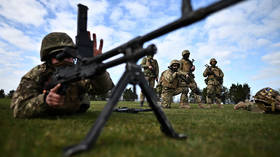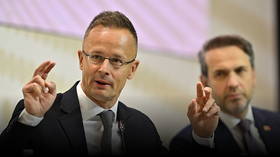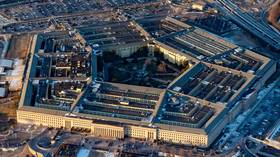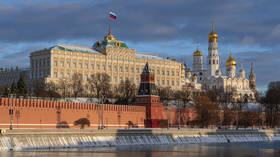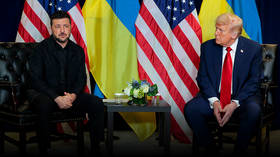Numerous countries cast doubt on Pentagon leaks
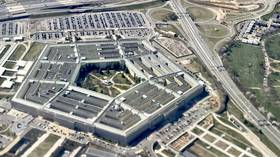
Officials in several US-allied countries have scrambled to push back against the alleged revelations made in a leaked trove of classified Pentagon documents outlining Washington’s clandestine activities.
Dozens of sensitive documents – which, according to the Wall Street Journal, began to emerge online as early as January but did not receive media attention until last week – focused on US war planning in Ukraine and provided a rare glimpse into Washington’s efforts to spy on both adversaries and allies.
One of the documents claimed, as reported by the Washington Post, that last September, a Russian fighter jet almost shot down a British RC-135 reconnaissance aircraft over the Black Sea, which could have potentially sparked a direct conflict between NATO and Moscow.
However, an unnamed British defense source told the Financial Times that “these reports contain inaccuracies and do not reflect what happened in international air space over the Black Sea.”
Commenting on the leaks, Seoul dismissed the allegation that Washington attempted to spy on high-ranking South Korean officials as “absurd and false,” noting that any efforts to eavesdrop on internal discussions in the presidential compound in Seoul would have to overcome “watertight security.”
Joining the chorus of denials over the Pentagon leaks, the Bulgarian Defense Ministry said on Monday that it “has not held talks on the free provision of MiG-29 fighters to Ukraine” as it would undercut Sofia’s defense capabilities.
Israel also addressed reports on the leaks which alleged that the country could provide lethal weapons to Ukraine if put under enough pressure. On Monday, Prime Minister Benjamin Netanyahu said that while Israel has been providing Ukraine with humanitarian assistance and civil defense systems, there has been “no decision about lethal weaponry.”
Ukraine, which looms large in the documents, also dismissed the leaks as fake. Mikhail Podoliak, a senior aide to Ukrainian President Vladimir Zelensky, portrayed them as a ploy by Moscow to derail Kiev’s planned counteroffensive, given that the documents detail US and NATO plans to build up Ukraine’s forces before the much-anticipated spring operation.
Despite the flurry of denials, several Western media outlets reported that the leaks sent shockwaves through Washington, sending the administration of US President Joe Biden into “crisis mode.” The Pentagon has said that the papers pose a “very serious risk” to Washington, and an assessment of the files is ongoing.
